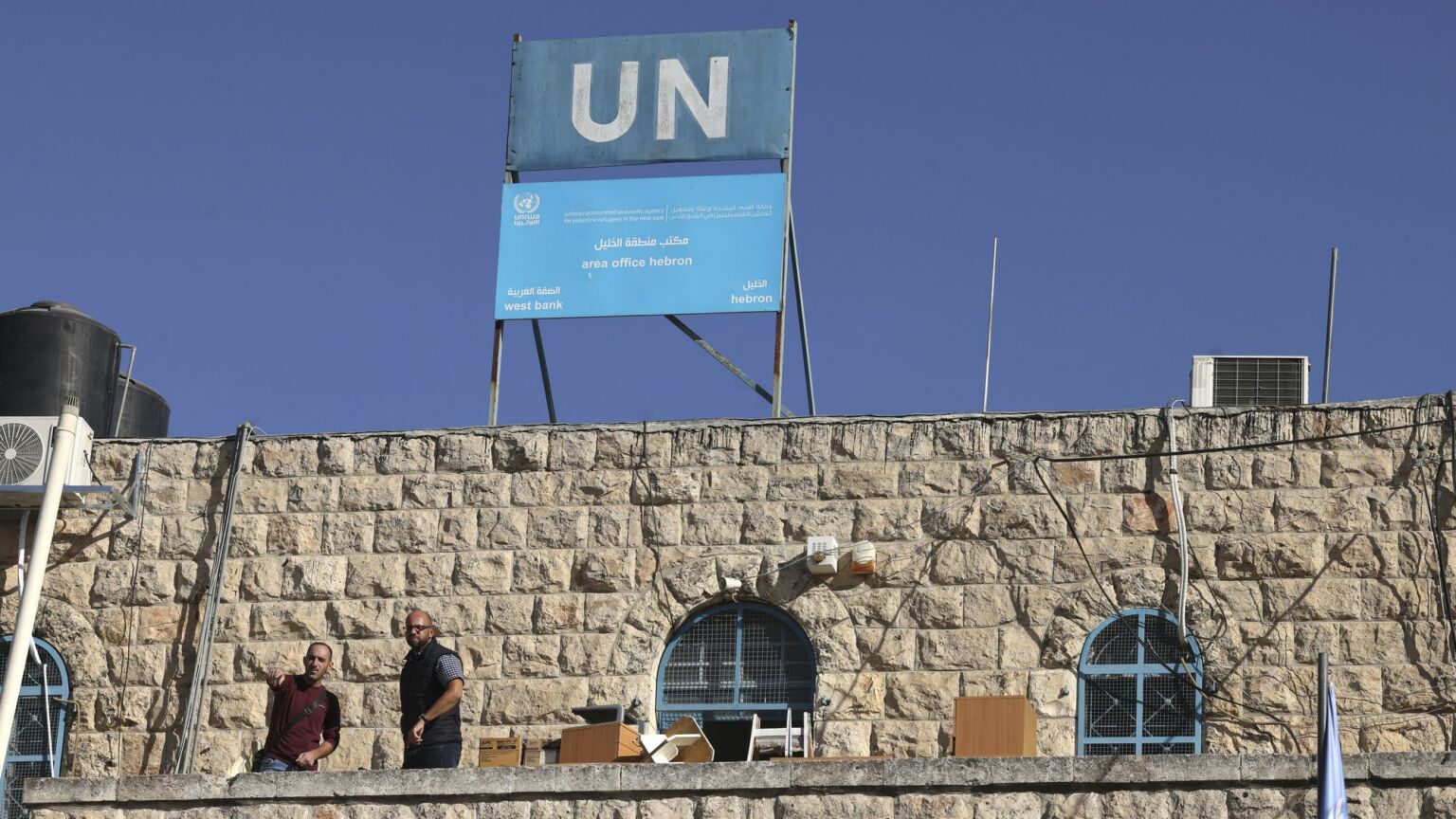Israel is right to shun UNRWA
No other country would be expected to tolerate an organisation with terror links operating on its soil.

Want to read spiked ad-free? Become a spiked supporter.
Whenever Israel tries to protect itself, it is accused of behaving monstrously. We saw this again this week when the Israeli Knesset (parliament) passed laws restricting the activities of UNRWA (aka the United Nations Relief and Works Agency for Palestine Refugees in the Near East).
The media widely reported this as a cruel attempt to prevent aid from getting to Gaza. Many Western governments, including America and Britain, argued along similar lines. UK prime minister Keir Starmer accused Israel of ‘jeopardising the entire international humanitarian response in Gaza and delivery of essential health and education services in the West Bank’. To activists and online commentators, this was yet more proof of their entirely false claim that Israel is engaging in a ‘genocide’ of the Palestinians. What all this ignores is the very strong grounds Israel has to be suspicious of UNRWA.
The Knesset passed two bills related to UNRWA on Monday, both of which are intended to come into force within 90 days. The first bans it from operating in East Jerusalem (which Israel considers part of its sovereign territory), while the second prevents Israeli officials from engaging with the agency. While outside observers fear this could prevent aid from getting into Gaza, Israel insists that other international agencies, such as the UN World Food Programme and UNICEF, can fill the gap.
Israel argues – and with good reason – that UNRWA is thoroughly compromised by its close links to Hamas. Indeed, this UN agency is no neutral arbiter. Many of its employees are involved with the Islamist terror group. Earlier this year, UNRWA sacked nine staff members who it admitted may have been involved in Hamas’s 7 October pogrom. Last month, UNRWA also confirmed that Fateh Sherif, the recently assassinated leader of Hamas in Lebanon, was one of its employees. Israel also maintains – again, with strong evidence – that UNRWA-run schools in Gaza have long propagated anti-Semitic material.
Even aside from the links to Hamas, Israel has a more fundamental reason to object to UNRWA. It is no exaggeration to say that its work is designed to delegitimise the state of Israel. It has also undoubtedly played a role in prolonging the Israel-Palestine conflict.
For one thing, UNRWA is a UN agency dedicated solely to serving who it deems to be Palestinian refugees. All other refugees around the world are the responsibility of UNHCR (the United Nations High Commissioner for Refugees). The UNHCR operates on the premise that refugee status is temporary. Its goal is to assist refugees until they can either, hopefully, return to their home country or settle permanently elsewhere.
In contrast, for UNRWA, Palestinians are considered permanent refugees. Uniquely, refugee status can be handed down from generation to generation. That explains why UNRWA estimates that there are 5.9million Palestinian refugees today, even though just 700,000 Palestinians were displaced when Israel was founded in 1948 – an event Palestinians call the Nakba (‘catastrophe’).
Curiously, many Palestinians classified as refugees today live in areas that even supporters of Palestinian statehood would consider to be part of historical Palestine. That includes East Jerusalem, Gaza and the West Bank. UNRWA counts them as ‘refugees’ despite the fact they say they are living in their own homeland.
The Arab regimes on Israel’s borders have compounded this problem. Today, many people of Palestinian heritage in countries such as Jordan, Lebanon and Syria often have tenuous personal connections to their ancestors’ land. In many cases, it was their grandparents or great grandparents who fled what is Israel today in 1948. Yet the new generations are often not integrated into the countries where they were born and raised. Their permanent refugee status is used to keep them separate from the general population. For example, it is hard for Palestinians to get citizenship in Lebanon and Syria, even if they were born and brought up there. UNRWA insists that these millions of people have a right of return to lands that have been recognised as Israeli for decades. This essentially calls into question Israel’s right to exist.
Israel certainly has a duty to do its best to ensure Palestinians in Gaza receive sufficient food and other supplies. But it is highly doubtful that UNRWA, even if it was reformed, would be the best vehicle to achieve this goal. It seems far more focussed on undermining Israel than helping to provide Palestinians with their everyday needs. Indeed, if anything, UNRWA plays a key role in perpetuating the plight of the Palestinians.
To be frank, no other country would be expected to tolerate an organisation like UNRWA operating on its soil. As ever, the anti-Israel set is subjecting the Jewish State to extraordinary double standards.
Daniel Ben-Ami is an author and journalist. He runs the website Radicalism of Fools, dedicated to rethinking anti-Semitism. Follow him on X: @danielbenami
Picture by: Getty.
Who funds spiked? You do
We are funded by you. And in this era of cancel culture and advertiser boycotts, we rely on your donations more than ever. Seventy per cent of our revenue comes from our readers’ donations – the vast majority giving just £5 per month. If you make a regular donation – of £5 a month or £50 a year – you can become a and enjoy:
–Ad-free reading
–Exclusive events
–Access to our comments section
It’s the best way to keep spiked going – and growing. Thank you!









Comments
Want to join the conversation?
Only spiked supporters and patrons, who donate regularly to us, can comment on our articles.